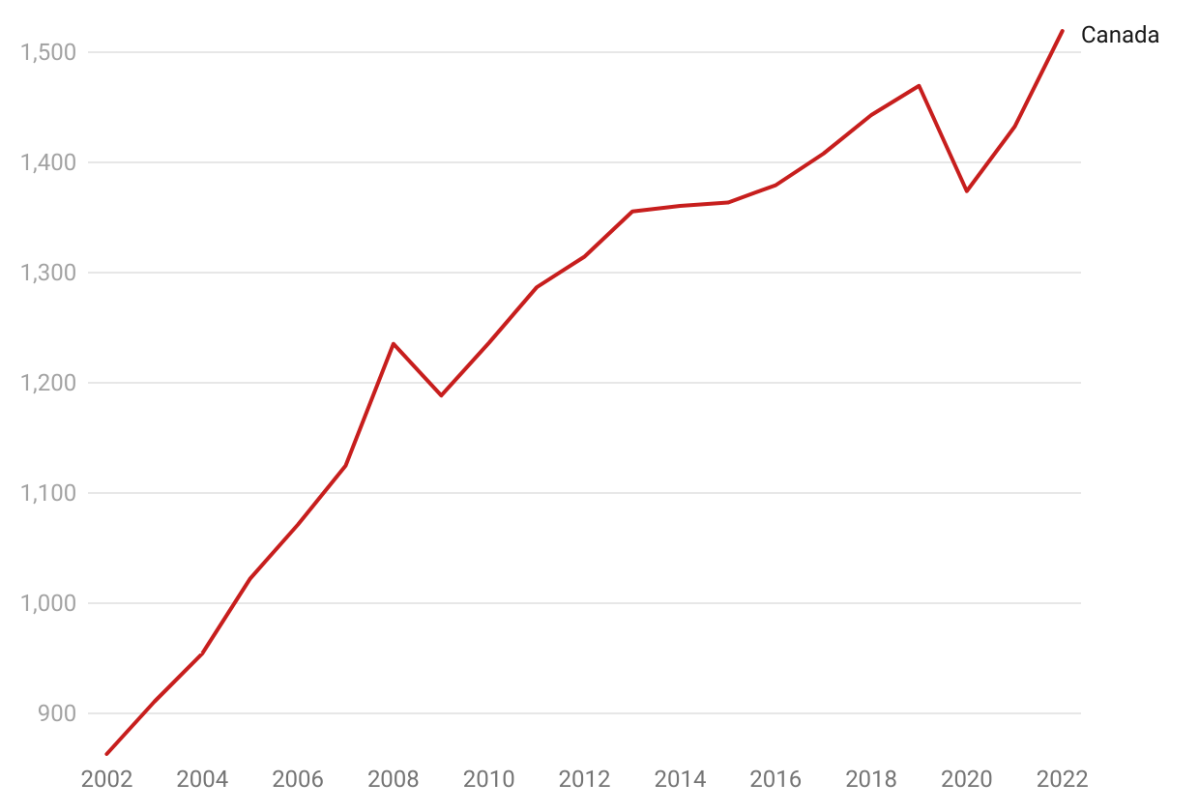An association representing hundreds of construction companies in Calgary is sounding the alarm about job vacancies in the region.

The Calgary Construction Association (CCA) said commercial and residential builders are struggling to find enough workers to keep up with development demands.
CCA president Bill Black said labour makes up around two-thirds of the cost of a building, and protracted schedules can also drive up costs.
“So if you start to see, as we have done in the past, labour begin to get to the point where it cannot meet the demand, you will start to see significant escalation (and) you’ll get delays to projects which then can also have cost implications,” Black said. “And so literally you will potentially see an inability to meet the economic growth.
“Our concern is that this year and in the near future, the skilled worker shortage will become a key issue.”
The construction association said there are 3,000 to 4,000 construction job vacancies in the Calgary region.
The CCA president said he’s heard of member companies going overseas to recruit workers for the upcoming spring construction season, and vacancies are felt on construction sites and in company offices.

Federally, the Canadian Construction Association said there are over 93,000 construction job vacancies in the industry that employs 1.3 million Canadians. Statistics Canada pegged October’s construction job vacancies at 67,400 after a decline of 17,200 in Q3.
According to Canada Mortgage and Housing Corporation data, housing starts in Alberta have been trending up since the onset of the COVID-19 pandemic, with October 2022 starts surpassing September 2014 levels.
The CCA is calling for a rework of the immigration system to seek individuals with high-value, construction-specific skills.

The association also wants the education system to expose more junior high and high school students to the trades, and increase funding for post-secondary institutions to train in the skilled trades.

Get breaking National news
“I think we have to face up to the reality that interest with young people in pursuing careers in construction has not been growing over the years. It has not necessarily been seen as the most attractive route by them and in many cases, their parents and in also many cases their teachers,” Black said.
“The youth, the parents and the schools need to recognize that (a construction career) is a great opportunity and some of the stigma that has been attached to it increasingly over the years is maybe misplaced.”
In October 2022, homebuilder Jayman Built and residential construction and development industry association BILD Alberta announced a scholarship fund to help 1,400 students pursue construction training at SAIT and NAIT in a bid to shore up worker shortages.
Construction employment figures show growth in Alberta’s sector that mirrored the federal sector for much of the last two decades.
After taking a downward turn in 2015, employment in Alberta’s construction industry has returned to 2011 levels, Statistics Canada data shows.
On Tuesday, the Alberta government announced it was making changes to the Alberta Advantage Immigration Program to nominate workers in high-demand sectors with close relatives already in the province.
Workers with established support systems – increasing their likelihood of an easier transition to Alberta – would be nominated by the province for permanent residency.
“When you have connections into the country (and) into the province that you’re moving into, that social support does make a difference in helping people settle on a more stable basis,” Trade, Immigration and Multiculturalism Minister Rajan Sawhney said, noting close relatives are defined as parents, children or siblings.
Construction was one of the in-demand sectors included in the program, along with health care, technology and engineering.
Scott Crockatt, the vice-president of communications with the Business Council of Alberta, said immigrants and newcomers bring an infusion of skills and add value to the province’s economy.

“We need that right now, because Alberta’s economy is white hot at the moment and our labour market is facing severe shortages,” Crockatt said. “More than half – 60 per cent – of Alberta’s major employers say that finding the right skilled people to do the job is one of their biggest hurdles to growth at the moment.”
Sawhney said 815 of the province’s allotment of 6,500 nominations are earmarked for the new changes. She expects the change will help address the cumulative skilled worker shortage of 33,100 expected by 2025.
The provincial government said Alberta has 100,000 job openings across the province.












Comments